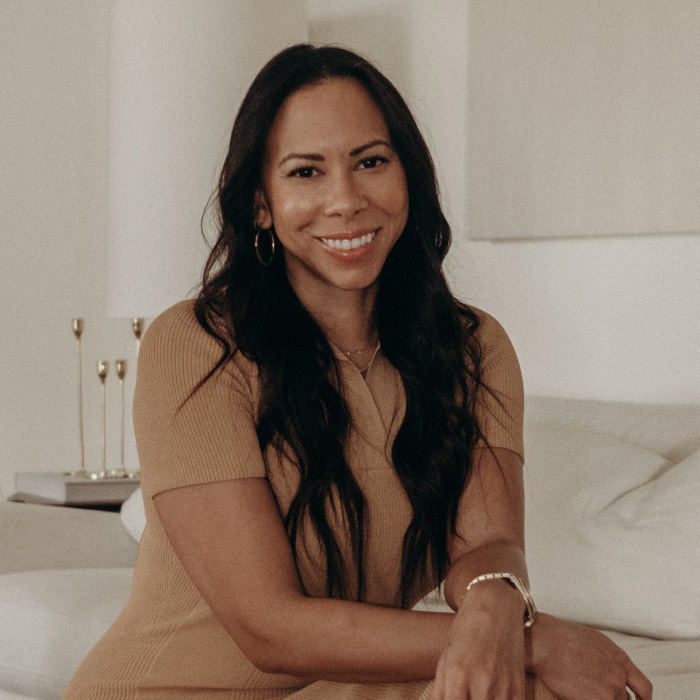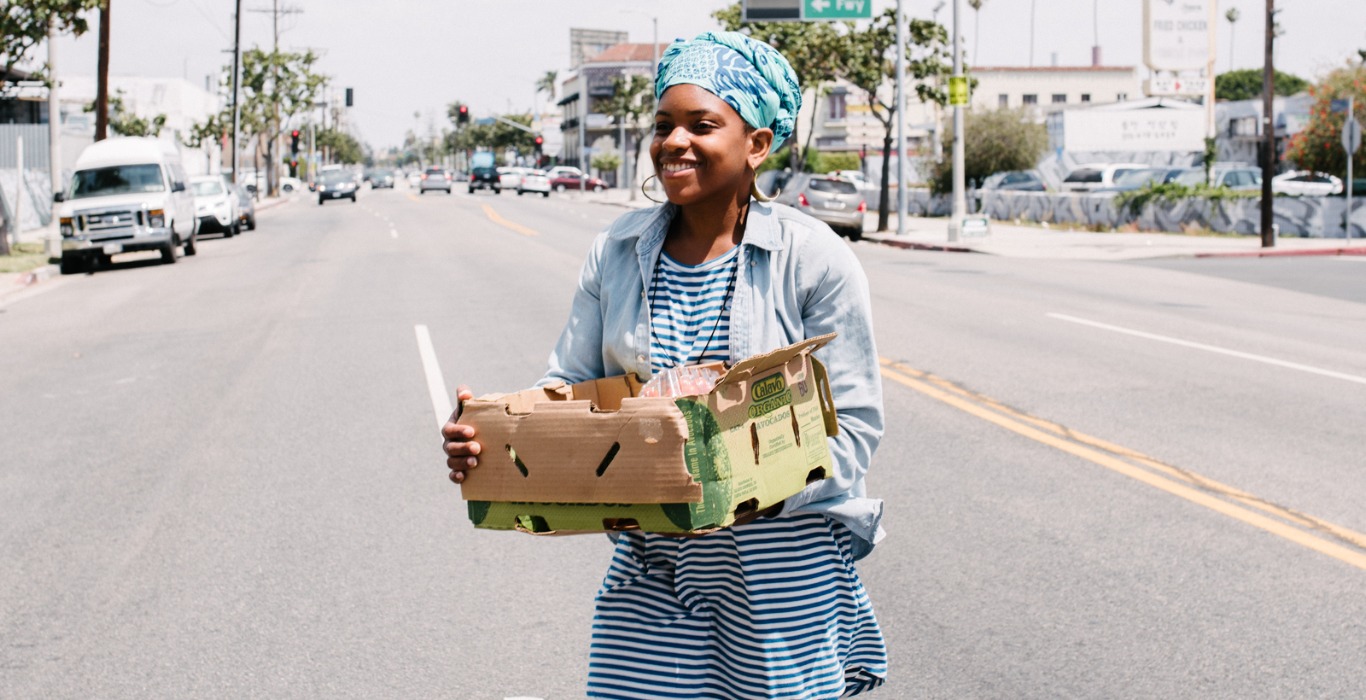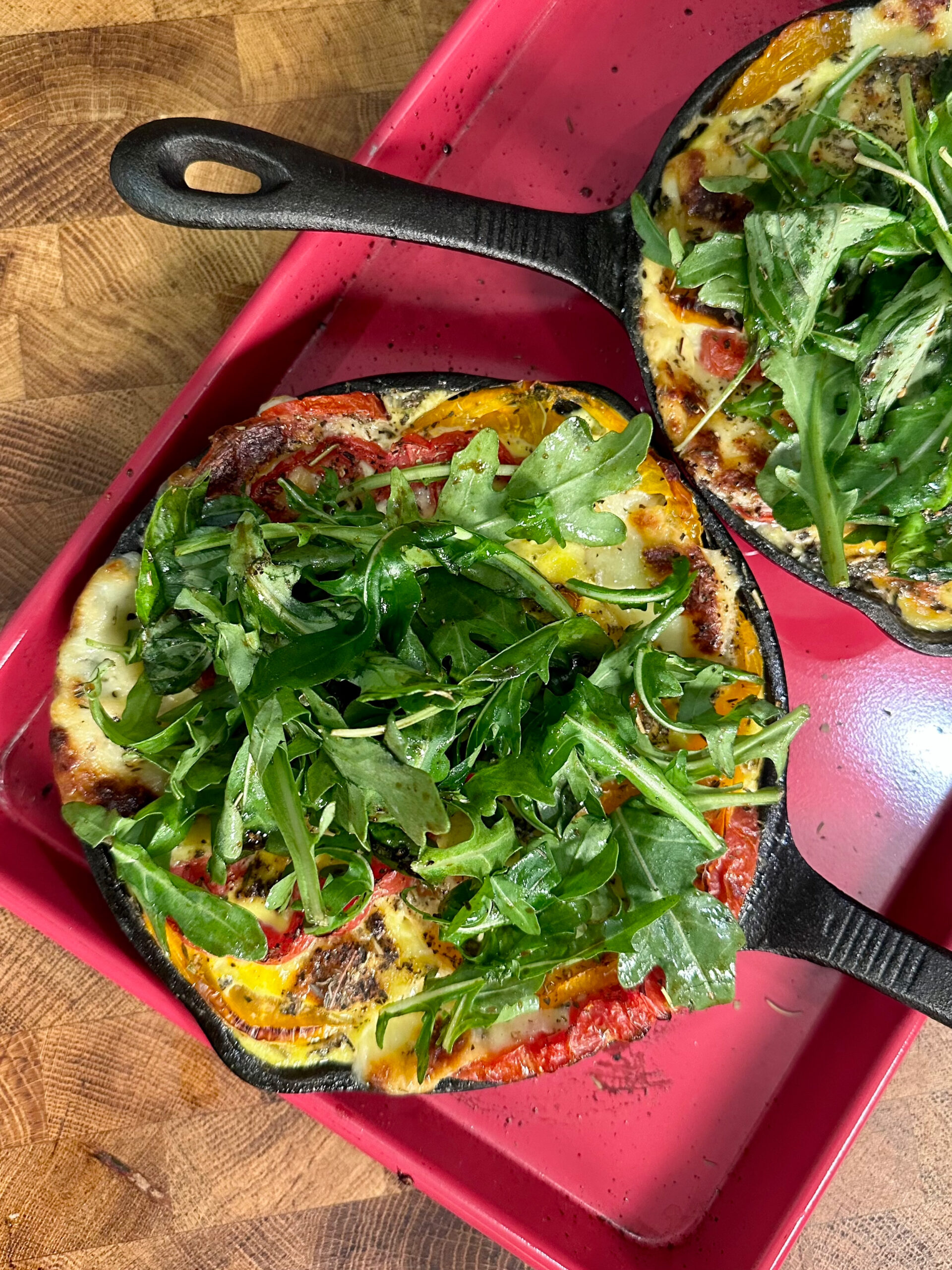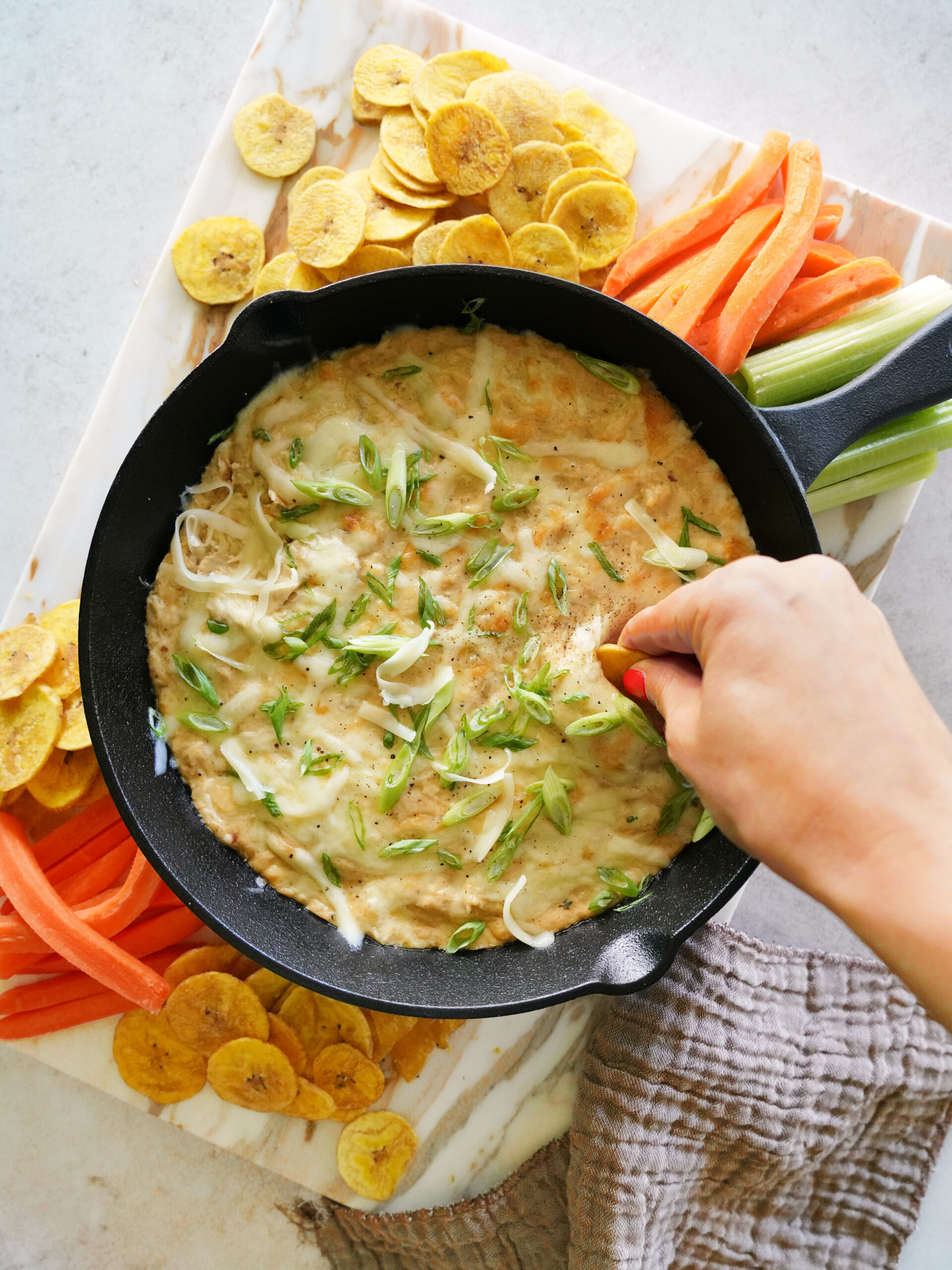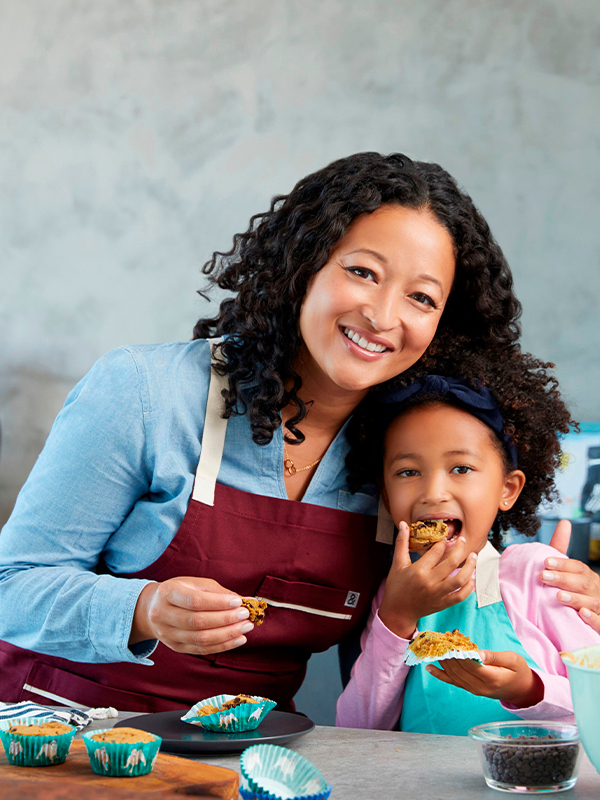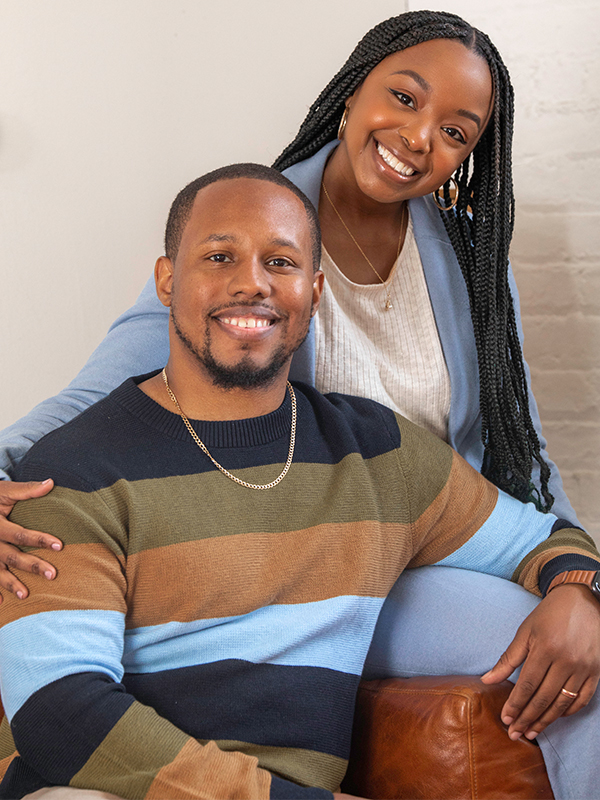ENDING FOOD APARTHEID IN SOUTH L.A.
Olympia Auset’s pop-ups have provided more than 70,000 pounds of affordable produce to communities in South Central L.A. Now, after launching a successful fundraising campaign, she’s opening SÜPRMARKT, the area’s first full-service organic grocery. Located in a building that, for decades, had been Mr. Wisdom’s, a health food store on Slauson Avenue, Auset plans to continue her mission of making fresh foods available for all.
“South Central has 1.3 million residents and only 60 grocery stores. Our mission is to eradicate food apartheid by 2040.”
As she explains, “many people know food apartheid by the term food desert; it’s a place where you have to travel more than two miles in order to get any sort of fresh food. These are places where liquor stores and fast-food options abound, but anything that’s actually healthy for you is going to be difficult to come by, and if you do come by it, it’s going to be expensive.”
Here, Auset reveals how SÜPRMARKT is fighting to make lack of access to healthy foods a thing of the past. Plus, how the nonprofit takes the guesswork out of shopping for healthy options.
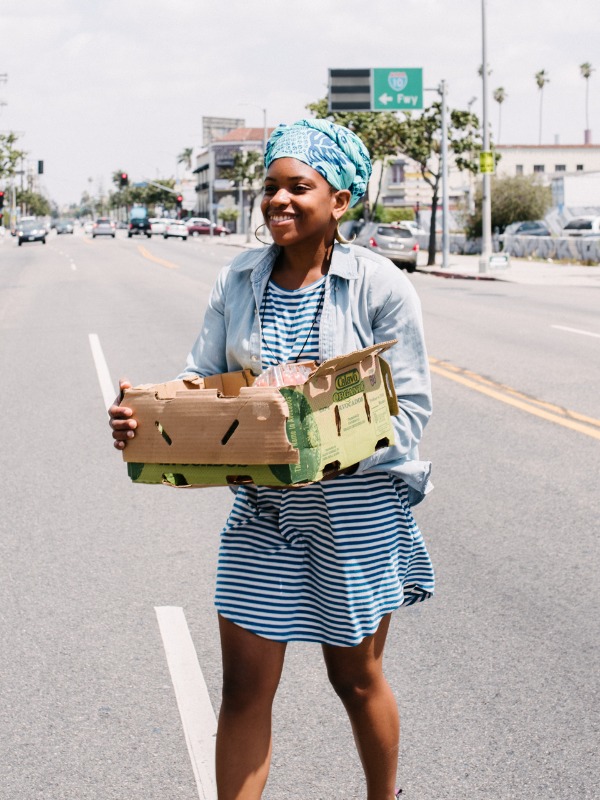
What is SÜPRMARKT and how would you describe your mission?
We are low-cost organic grocery that makes it easy and affordable for people to eat well in food deserts. We started four years ago and since then we’ve provided more than 70,000 pounds of organic produce. We started out going to different places with just a tent and a table, and then we added a pickup and delivery service for organic food. Now, we’ve purchased a historic location called Mr. Wisdoms on Slauson Ave, which we’re going to turn into South Central’s first ever full-service organic grocery store. Our mission is to eradicate food apartheid by 2040—many people know food apartheid by the term food desert; it’s a place where you have to travel more than two miles in order to get any sort of fresh food. These are places where liquor stores and fast food options abound, but anything that’s fresh and actually healthy for you is going to be difficult to come by—and if you do come by it, it’s going to be expensive. South Central has 1.3 million residents and only 60 grocery stores, so we’re really excited to make that 61. None of the options that exist now are organic grocery stores, so we’re really happy to be able to fill this critical need in our community. I grew up in South Central and just living here makes you two or three times as likely to die from preventable illnesses such as heart disease, Cancer or obesity.
What inspired you to start this initiative?
I went to Howard University, where I learned a lot of things that opened my eyes to the disparities in our food system. Among those were food access, the impact that it has on a person’s potential, and how the lack of access to healthy food has impacted my community. I’ve always wanted to help my people and started to understand that there’s nothing we can accomplish until we fix the way that we feed ourselves. The way that we feed ourselves is a silent killer; African Americans lead every other ethnic group in deaths from preventable disease, and most of it is diet-related. When was 23, I had four close people pass away in one year, which really hit home. After graduating, I transitioned to a raw vegan diet of mostly fruits and vegetables. Because there weren’t healthy options in my neighborhood, would take the bus 2 hours to get fresh food. I was struggling to feed myself and realized that so many people in my neighborhood shared the same struggle. No one should have to be in the store debating if they can afford an apple; or if they decide they want to eat salads for a whole week or do a juice cleanse for an entire week, they shouldn’t be handicapped. Those were sort of the circumstances that SÜPRMARKT was born out of. In the beginning, we got most of our produce from a major organics wholesaler; we set up a table, and though we didn’t have much, the community was really grateful.
“Working on SÜPRMARKT showed me how much hard work goes into establishing a business. There are people that achieve growth at an accelerated pace because they have backing and access to capital, but we are completely self-funded.”
How did Covid impact your mission?
When Covid first hit, everyone ran to their local stores in a panic, and the shelves were empty. I was concerned about those who couldn’t easily get to stores and wanted to do what I could to help my community. We did a giveaway of lentils, rice, beans, quinoa and other shelf staples, and we started a free vegan meal program with Black vegan vendors. We went from doing 20 pre-packed bags a week to 100. I’m glad we were able to rise to the challenge and help a lot of people.
Why does race matter when we talk about issues surrounding food equity?
It’s easy to look at the statistics of who’s suffering the most from food desert environments and it is mostly Black and Brown people, but beyond that, we have to understand that the current power structure that we’re in has an interest in controlling as many aspects of a person’s life as possible and food is a really big part of that. One reason why is that food affects your cognitive ability; not having access to enough food makes you more likely to commit violent crimes and less likely to perform as well in school. Those who may conquer those challenges and get past those barriers might still find themselves facing a myriad of health issues resulting from a bad diet that’s been passed down for generations.
What’s the most important lesson that you’ve learned along the way?
Working on SÜPRMARKT showed me how much hard work goes into establishing a business. There are people that achieve growth at an accelerated pace because they have backing and access to capital, but we are completely self-funded. Our first year we were working with $2500 of our own money and we just kept flipping it and making it stretch. We’ve gotten some grants here and there and have received a lot of love from media outlets, but I notice that when it comes time for us to go out for major funding for larger campaigns like the work we’re doing to open South Central’s first organic grocery store, people don’t take us as seriously.
What’s been the most inspiring thing about your work?
Seeing how our work shows up in people’s lives. My head is down most of the time working on various tasks, so I don’t always get to see the ripples we’re having. We did a series of film screenings highlighting health-focused documentaries and tools that people could implement in their lives. One of the films was about reversing diabetes. An attendee of that screening shared with me that after seeing the film, her diabetic mom in Alabama committed to a raw vegan diet for 30 days. As a result, she not only reversed her thyroid condition, but she was taken off of her diabetes medication and is thriving. You never know how what you do is going to impact someone, so it was very special that this daughter was able to introduce this new way of eating to her mom at a later stage in her life.
I love that idea of cross-generational wellness. This new generation is really redefining the face of wellness and dispelling myths around the origins of our diet.
We’re definitely going back to the origins of our diet; there was a lot of plant-based eating in our original diet [as Africans]. The narrative that Black folks only eat chitlins and fried chicken is just not true; historically, many of those unhealthy practices were birthed out of slavery. It’s empowering to reclaim that narrative.
How can we support your efforts?
Our forthcoming grocery store will offer subsidized organic foods, so we really need everyone’s help by not only donating whatever they can personally, but by getting the companies they work for to donate, getting their bosses, friends and family members to donate, and by providing introductions to foundations and companies that might be able to support. People can learn more about us and watch our fundraising video at SÜPRMARKT. Once we open, we will have a program where folks can sponsor other people’s groceries for those interested in that as well. I would also ask people to watch two educational food documentaries because that knowledge is so important.



